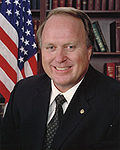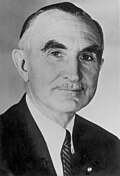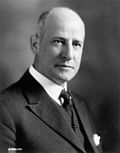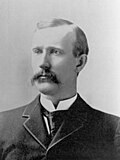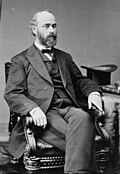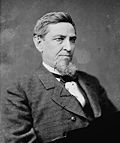| Image | Representative | District | Term | Notes |
|---|
 | Paul Mitchell | Michigan 10th | 2017–2021 | First elected as a Republican, switched to independent in 2020 |
 | Justin Amash | Michigan 3rd | 2011–2021 | First elected as a Republican, switched to independent in 2019 and then to Libertarian in 2020 |
 | Virgil Goode | Virginia 5th | 1997–2009 | Switched from Democratic to independent in 2000, then to Republican in 2002 |
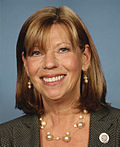 | Jo Ann Emerson | Missouri 8th | 1996–2013 | First elected as a Republican, re-elected as an independent due to state law, then rejoined Republicans in early 1997 |
 | Bernie Sanders | Vermont at-large | 1991–2007 | Elected as an independent |
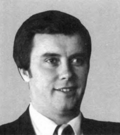 | William Carney | New York 1st | 1979–1987 | Elected as a Conservative and later sat with Republicans, switched to Republican in 1985 |
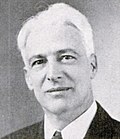 | Frazier Reams | Ohio 9th | 1951–1955 | Elected as an independent |
 | Franklin Delano Roosevelt Jr. | New York 20th | 1949–1955 | Elected as a Liberal, re-elected as Democratic |
 | Leo Isacson | New York 24th | 1948–1949 | Elected from the American Labor Party ticket |
 | Harold Hagen | Minnesota 9th | 1943–1955 | Elected as a member of the Minnesota Farmer–Labor Party in 1942 |
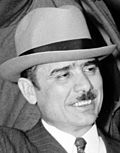 | John Bernard | Minnesota 8th | 1937–1939 | Elected as a member of the Minnesota Farmer–Labor Party in 1936 |
 | Dewey Johnson | Minnesota 5th | 1937–1939 | Elected as a member of the Minnesota Farmer–Labor Party in 1936 |
 | Franck R. Havenner | California 4th | 1937–1941, 1945–1953 | Elected as a Progressive |
 | Henry Teigan | Minnesota 3rd | 1937–1939 | Elected as a member of the Minnesota Farmer–Labor Party in 1936 |
 | Thomas Ryum Amlie | Wisconsin 1st | 1935–1939 | Elected as a Progressive |
 | Gerald J. Boileau | Wisconsin 7th | 1935–1939 | Elected as a Progressive |
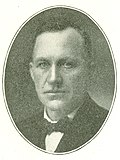 | Rich T. Buckler | Minnesota 9th | 1935–1943 | Elected as a member of the Minnesota Farmer–Labor Party in 1934 |
 | Bernard J. Gehrmann | Wisconsin 10th | 1935–1943 | Elected as a Progressive |
 | Harry Sauthoff | Wisconsin 2nd | 1935–1945 | Elected as a Progressive |
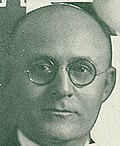 | George J. Schneider | Wisconsin 8th | 1935–1939 | Elected as a Progressive |
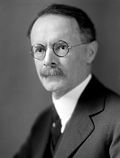 | Merlin Hull | Wisconsin 9th | 1935–1944 | Elected as a Progressive |
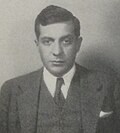 | Vito Marcantonio | New York 20th | 1935–1937, 1939–1945 | Elected from the American Labor Party ticket in 1938 |
 | Gardner R. Withrow | Wisconsin 3rd | 1935–1939 | Elected as a Progressive |
 | Henry M. Arens | Minnesota at-large | 1933–1935 | Elected as a member of the Minnesota Farmer–Labor Party in 1932 |
 | Magnus Johnson | Minnesota at-large | 1933–1935 | Elected as a member of the Minnesota Farmer–Labor Party in 1932 |
 | Ernest Lundeen | Minnesota 5th, Minnesota at-large, Minnesota 3rd | 1933–1937 | Elected as a member of the Minnesota Farmer–Labor Party in 1932 |
 | Francis Shoemaker | Minnesota at-large | 1933–1935 | Elected as a member of the Minnesota Farmer–Labor Party in 1932 |
 | Paul John Kvale | Minnesota 7th, Minnesota at-large | 1929–1939 | Elected as a member of the Minnesota Farmer–Labor Party in 1928 |
 | Knud Wefald | Minnesota 9th | 1923–1927 | Elected as a member of the Minnesota Farmer–Labor Party in 1922 |
 | Ole J. Kvale | Minnesota 7th | 1923–1929 | Elected as a member of the Minnesota Farmer–Labor Party in 1922 |
| | William Leighton Carss | Minnesota 8th | 1919–1929 | Elected as a member of the Minnesota Farmer–Labor Party in 1918 |
 | Fiorello La Guardia | New York 14th, New York 20th | 1917–1919, 1923–1933 | Re-elected as a Socialist in 1924, ran as a Republican in all other elections |
 | John A. Elston | California 6th | 1915–1921 | Elected as a Progressive in 1915 |
 | Meyer London | New York 12th | 1915–1923 | Elected as a Socialist |
 | Whitmell P. Martin | Louisiana 3rd | 1915–1929 | Elected as a Progressive |
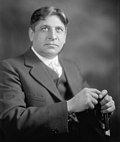 | Thomas D. Schall | Minnesota 10th | 1915–1925 | Elected as a Progressive |
 | Charles Hiram Randall | California 9th | 1915–1921 | Elected as a Prohibitionist |
 | Walter M. Chandler | New York 19th | 1913–1919 | Elected as a Progressive in 1913 |
 | James W. Bryan | Washington at-large | 1913–1915 | Elected as a Progressive in 1913 |
 | Jacob Falconer | Washington at-large | 1913–1915 | Elected as a Progressive in 1913 |
 | William H. Hinebaugh | Illinois 12th | 1913–1915 | Elected as a Progressive in 1913 |
 | Willis James Hulings | Pennsylvania 28th | 1913–1915 | Elected as a Progressive in 1913 |
| William Josiah MacDonald | Michigan 12th | 1913–1915 | Elected as a Progressive in 1913 |
 | Milton William Shreve | Pennsylvania 25th | 1913–1915, 1919–1933 | Re-elected as an Independent Republican in 1920 |
 | Henry Wilson Temple | Pennsylvania 24th | 1913–1915 | Elected as a Progressive in 1913 |
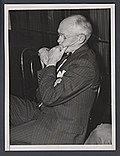 | Charles M. Thomson | Illinois 10th | 1913–1915 | Elected as a Progressive in 1913 |
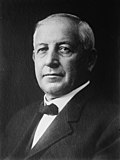 | William Stephens | California 10th | 1911–1917 | Switched parties from a Republican to a Progressive in 1913 |
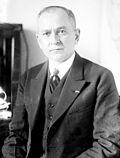 | Roy O. Woodruff | Michigan 10th | 1913–1915 | Elected as a Progressive in 1913 |
 | Bill Kent | California 1st | 1913–1917 | Elected as an independent |
 | Ira C. Copley | Illinois 11th | 1911–1923 | Switched from a Republican to a Progressive in 1915 |
 | Victor L. Berger | Wisconsin 5th | 1911–1929 | Elected as a Socialist |
 | Peter A. Porter | New York 34th | 1907–1909 | Elected as an Independent Republican |
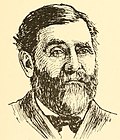 | Caldwell Edwards | Montana at-large | 1901–1903 | Elected as a Populist |
 | Thomas L. Glenn | Idaho at-large | 1901–1903 | Elected as a Silver |
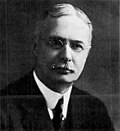 | John Wilbur Atwater | North Carolina 4th | 1899–1901 | Elected as a Populist |
 | William Neville | Nebraska 6th | 1899–1903 | Elected as a Populist |
 | Edgar Wilson | Idaho at-large | 1899–1901 | Elected as a Silver Republican |
 | Charles A. Barlow | California 6th | 1897–1899 | Elected as a Populist |
 | Jeremiah D. Botkin | Kansas at-large | 1897–1899 | Elected as a Populist |
 | Curtis H. Castle | California 7th | 1897–1899 | Elected as a Populist |
 | John Edgar Fowler | North Carolina 3rd | 1897–1899 | Elected as a Populist |
 | William Laury Greene | Nebraska 6th | 1897–1899 | Elected as a Populist |
 | James Gunn | Idaho at-large | 1897–1899 | Elected as a Populist |
 | William Carey Jones | Washington at-large | 1897–1899 | Elected as a Silver Republican |
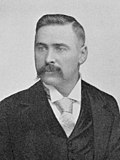 | John Edward Kelley | South Dakota at-large | 1897–1899 | Elected as a Populist |
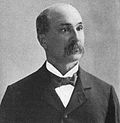 | Freeman Knowles | South Dakota at-large | 1897–1899 | Elected as a Populist |
| Charles Martin | North Carolina 6th | 1897–1899 | Elected as a Populist |
 | Samuel Maxwell | Nebraska 3rd | 1897–1899 | Elected as a Populist |
 | Nelson B. McCormick | Kansas 6th | 1897–1899 | Elected as a Populist |
 | Mason S. Peters | Kansas 2nd | 1897–1899 | Elected as a Populist |
 | Edwin R. Ridgely | Kansas 3rd | 1897–1901 | Elected as a Populist |
 | William Ledyard Stark | Nebraska 4th | 1897–1903 | Elected as a Populist |
 | Roderick Dhu Sutherland | Nebraska 5th | 1897–1901 | Elected as a Populist |
 | William D. Vincent | Kansas 5th | 1897–1899 | Elected as a Populist |
 | Albert Taylor Goodwyn | Alabama 5th | 1896–1897 | Elected as a Populist |
 | John F. Shafroth | Colorado 1st | 1895–1904 | Switched from Republican to Silver Republican in 1897 |
 | Milford W. Howard | Alabama 7th | 1895–1899 | Elected as a Populist in 1894 |
 | Harry Skinner | North Carolina 1st | 1895–1899 | Elected as a Populist |
 | William Franklin Strowd | North Carolina 4th | 1895–1899 | Elected as a Populist |
 | John Calhoun Bell | Colorado 2nd | 1893–1903 | Elected as a Populist |
 | Marion Cannon | California 6th | 1893–1895 | Elected as a Populist |
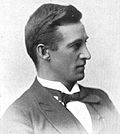 | Lafe Pence | Colorado 1st | 1893–1895 | Elected as a Populist |
 | Alonzo C. Shuford | North Carolina 7th | 1893–1899 | Elected as a Populist |
 | Thomas Jefferson Hudson | Kansas 3rd | 1893–1895 | Elected as a Populist |
 | Haldor Boen | Minnesota 7th | 1893–1895 | Elected as a Populist |
 | Bill Harris | Kansas at-large | 1893–1895 | Elected as a Populist |
 | Bill Baker | Kansas 6th | 1891–1897 | Elected as a Populist |
 | Benjamin H. Clover | Kansas 3rd | 1891–1893 | Elected as a Populist |
 | John Davis | Kansas 5th | 1891–1895 | Elected as a Populist |
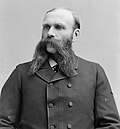 | Kittel Halvorson | Minnesota 5th | 1891–1893 | Elected as a Populist |
 | Omer Madison Kem | Nebraska 3rd | 1891–1897 | Elected as a Populist |
 | William A. McKeighan | Nebraska 2nd | 1891–1895 | Elected as a Populist |
 | John G. Otis | Kansas 4th | 1891–1893 | Elected as a Populist |
 | Jerry Simpson | Kansas 7th | 1891–1895 | Elected as a Populist |
 | Thomas E. Watson | Georgia 10th | 1891–1893 | Elected as a Populist |
| Lewis P. Featherstone | Arkansas 1st | 1889–1891 | Elected as a member of the Labor Party |
| Samuel I. Hopkins | Virginia 6th | 1887–1889 | Elected as a member of the Labor Party |
 | John Nichols | North Carolina 4th | 1887–1889 | Elected as an independent |
 | Henry Smith | Wisconsin 4th | 1887–1889 | Elected as a member of the Labor Party |
 | Benjamin F. Shively | Indiana 13th | 1884–1885 | Elected as an Anti-Monopolist |
 | James Ronald Chalmers | Mississippi 6th | 1883–1885 | Elected as an independent |
 | Ted Lyman | Massachusetts 9th | 1883–1885 | Elected as an independent |
 | Thomas P. Ochiltree | Texas 7th | 1883–1885 | Elected as an independent |
 | Charles N. Brumm | Pennsylvania 13th | 1881–1909 | Elected as a member of the United States Greenback Party in 1880 |
 | Joseph Henry Burrows | Missouri 10th | 1881–1883 | Elected as a member of the United States Greenback Party in 1880 |
 | Ira S. Haseltine | Missouri 6th | 1881–1883 | Elected as a member of the United States Greenback Party in 1880 |
 | James Mosgrove | Pennsylvania 25th | 1881–1883 | Elected as a member of the United States Greenback Party in 1880 |
 | Theron Moses Rice | Missouri 7th | 1881–1883 | Elected as a member of the United States Greenback Party in 1880 |
 | J. Hyatt Smith | New York 3rd | 1881–1883 | Elected as an independent |
 | Bradley Barlow | Vermont 3rd | 1879–1881 | Elected as a member of the United States Greenback Party in 1878 |
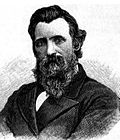 | Nicholas Ford | Missouri 9th | 1879–1883 | Elected as a member of the United States Greenback Party in 1878 |
| Albert P. Forsythe | Illinois 15th | 1879–1881 | Elected as a member of the United States Greenback Party in 1878 |
 | Edward H. Gillette | Iowa 7th | 1879–1881 | Elected as a member of the United States Greenback Party in 1878 |
 | George Jones | Texas 5th | 1879–1883 | Elected as a member of the United States Greenback Party |
 | George W. Ladd | Maine 4th | 1879–1883 | Elected as a member of the United States Greenback Party |
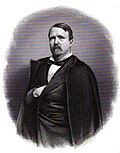 | William M. Lowe | Alabama 8th | 1879–1882 | Elected as a member of the United States Greenback Party in 1878 |
 | Gilbert De La Matyr | Indiana 7th | 1879–1881 | Elected as a member of the United States Greenback Party in 1878 |
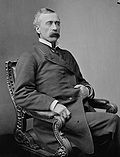 | Thompson H. Murch | Maine 5th | 1879–1883 | Elected as a member of the United States Greenback Party |
 | Henry Persons | Georgia 4th | 1879–1881 | Elected as an independent |
 | Daniel Lindsay Russell | North Carolina 3rd | 1879–1881 | Elected as a member of the United States Greenback Party |
 | Emory Speer | Georgia 9th | 1879–1883 | Elected as an independent |
 | James Weaver | Iowa 6th | 1879–1889 | Elected as a member of the United States Greenback Party in 1878 |
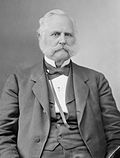 | Hendrick Bradley Wright | Pennsylvania 12th | 1879–1881 | Elected as a member of the United States Greenback Party in 1878 |
 | Seth Hartman Yocum | Pennsylvania 20th | 1879–1881 | Elected as a member of the United States Greenback Party in 1878 |





